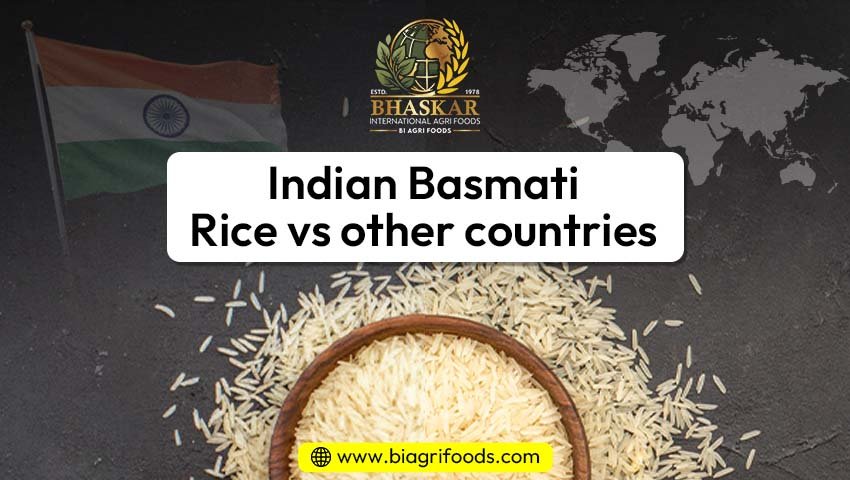
Indian Basmati Rice vs other countries
Basmati Rice Exporters in India: Rice is among the most popular foods consumed across the world, however one premium form of rice, 1121 Basmati rice, is always recognized. It is well fragrant, has long grains, and has culture; Indian basmati rice fills kitchens around the world. Other countries grow rice and even grow it in large volumes, but Indian basmati is unmatched.
In this blog, we will look at how Indian basmati rice is different, how it compares with rice produced in other countries, and why using a reputable Rice Exporter from India, matters.
What are the Special Qualities of Indian Basmati Rice?
Indian basmati rice is not just about flavour, it embodies history, soil quality and source.
- Indian basmati rice has a vibrant and natural aroma.
- 1121 basmati rice is recognized for its extra-long grains.
- Due to light weight and non-sticky texture, it is used for preparation of biryanis and pulao.
- Grown mainly in the Himalayan foothills that present Indian culture.
- Global demand in around 100 plus countries for purchasing Indian basmati rice.
- Due to its natural features, it is low in fat and easy to digest.
- It has a delicious taste, so it is used for preparing different dishes, so it is a worthwhile product, gives value for money.
Rice Produced by Other Countries
Different Countries such as China, Vietnam, Thailand and Pakistan are also listed as leading rice producers, but their rice is different from Indian basmati.
- China - Is the largest in volume of short and medium grain rice almost always sticky.
- Thailand - Famous for Jasmine rice, soft and aromatic yet generally shorter.
- Vietnam - Also known for large amounts of broken rice in bulk, primarily for price.
- Pakistan - Has basmati, but the aroma and grain size or shape are not like Indian basmati.
- Others - Concentrate on producing high-yielding varieties and large-scale production and not unique.
Difference between Indian Basmati Rice and Other Countries’ Rice
| Features | Indian Basmati Rice (1121) | Rice from other countries |
| Grain Length | Usually, 8.4mm long | Limited growth rice with short length |
| Fragrance | Strong natural Aroma improves with aging | Mild or no fragrance |
| Texture | Contain light, fluffy and non-sticky | Mostly sticky and soft |
| Cultural Value | Tied with Indian traditional and taste | Consider as just daily meal not cultural depth |
| Global Preference | High global demand | Mostly used as daily meal, less global demand |
Advantages of Selecting Indian Rice Exporters
When you choose a Rice Exporter in India, you choose more than quality rice- you choose reliability and authenticity.
- Price Protection - Exporters guarantee authentic and aged Basmati rice.
- Local and International Standards - Packaging and processing comply with international food standards and local inspection processes.
- Variety - Different opportunities to select basmati rice to include 1121 Steam, Sella, Brown Basmati, and others.
- Reliability - Given the volume of stocks exporter maintains, they can fill demand internationally.
- Quality - Bringing in quality rice from Indian exporters will provide for a premium at good value.
Why Work with a Reliable Rice Exporter in India?
The role of exporters is very important for ensuring that the rice reaches safely to the global market in its best form.
- Assured Quality
- Hygienic Packaging
- Wide Range
- On-Time Delivery
- Trust & Reliable partners
Final Thoughts
Indian Rice, especially 1121 basmati rice is 'The best rice in the world'. The delicious aroma, long grain, and cultural heritage offers worldwide appeal for specialty rice. When you want the original flavour and consistency, you should work with BI Agri Foods, a top Rice Exporter in India that guarantees the best basmati rice the country has to offer.

